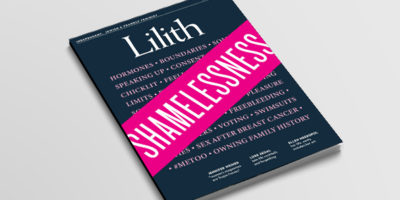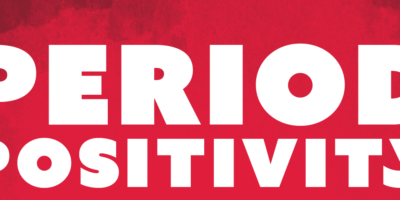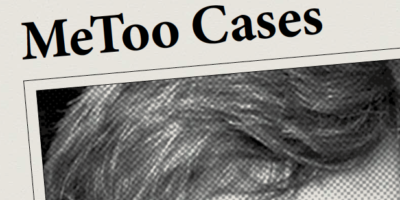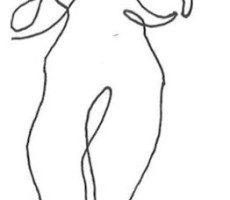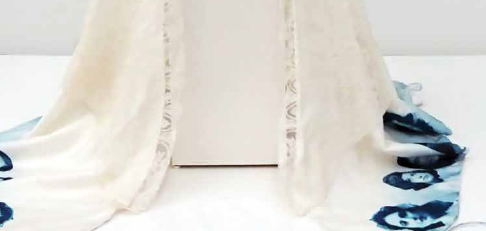
The Closer You Get, The Farther You Are
On Seeking Holiness in Community
Let’s say you are a girl born in the 1950s. Born after the greatest catastrophe to befall the Jewish people since the destruction of the Temple. And let’s say you are the eldest of four daughters and no sons, descendant— so you are told, frequently—of a lustrous rabbinic family, one that includes a revered scholar of the 17th century, Shabtai Ha-Kohen, the ShaKh.
Let’s say, as well, that you inherit the luster of this estate without the prestige that might have accrued to the eldest son of such a family in the world of Before— before the Enlightenment sheared off some of the brilliant ones to heretical ideas and ideologies; before the Nazis and the Poles and the Hungarians and the French murdered one third of the rest.
Born after that intact world but ahead of the era when women donned the garment of sacred scholarship that had not previously been their birthright, you become an ardent, mystical young woman who yearns to be closer, much closer, to God; who has an unaccountable instinct for your family’s lost authenticity, but without the sanction, power or pathway to retrieve it and bring it to life. Except, sanctioned only by yourself and the pedigree of centuries of commentators, as a writer of poems who has begun to discover her voice.
You are a seeker, in quest. But you have been given the gift of Jewish literacy and are in love with the Jewish story. Beneficiary of your parents’ commitment to a day school education, to Hebrew, to joyful holy days, the beauty of summer camp, and the miracle of Israel, you launch yourself into the world to deepen the profundity of the ecstatic and grieving communal experiences that your then-exceptional upbringing has bequeathed you.
You are not alienated. You do not feel parochial. You are not trying to escape.
You come of age at the dawn of Jewish feminism, the essential idea that allows you to claim a legacy that is only beginning to find an equal place for you; that grants you and a community of peers the confidence to defy the universalist feminism of Jewish women who reject a presumed and indicted patriarchy—a Judaism whose riches they were not given the learning to savor—in favor of the way of the biblical daughters of Tzlofchad, who appealed directly to Moses for the right to inherit their father’s portion.
And so, you do not leave. You do not become a Buddhist. You do not make the counterculture your religion or India or liberation theology. Instead of the expected Ph.D. in English literature, you drop out of graduate school, forsaking the Anglo-Saxon, Christianity-laden writing you were meant to teach someday, to embark on a pilgrimage to the Holy Land.
You are looking for a teacher to guide your soul, to quiet your turbulence, to meet your longing for God with a vocabulary, and—you suspect—boundaries, as your passion is consuming and, at times, terrifying. You are very alone, occasionally afraid you might go mad.
What do you find?
At every turn, your gender is an unscalable deterrent. You are not a young seeker. You are, it turns out, merely a young woman. You cannot become the talmid muvhak, the chosen pupil of an acclaimed rebbe. You cannot attend a yeshiva that teaches women advanced Talmud, for such an institution does not exist—although, decades into an unimaginable future, it will. You can scarcely be alone in a room with a rabbi or master teacher who has the knowledge and the wisdom for which you thirst. You find quirky avenues, a man who is not Orthodox to teach you Zohar privately; a class open to men, women, observant and secular Israelis given in Heichal Shlomo by a Talmud prodigy; a weekly gathering in the dining room of a gentle Bratslav hasid who opens his home in Me’ah She’arim each Thursday night to offer Likutei Moharan, Rebbe Nachman of Bratslav’s teachings, to the women of Jerusalem. You don a skirt and long sleeves to learn these eloquent, paradoxical texts at their source. (The teacher will die young, some say because he taught women.) You join a meditation group of women who speak only Hebrew to meet at night in Jerusalem’s winters in a shudderingly cold apartment where you are never sure you understand the instructions or what is meant to happen.
It is a motley education, self-assembled, that does and does not appease your hunger. You are a Canadian and a New Yorker, but your essentialist identity is: Female. You have hundreds of conversations to analyze and channel your yearning, but none can mitigate the barrier of gender.
In New York, an ocean away, women are awakening to their autonomy and ambition. The first National Jewish Women’s Conference has taken place in 1973. The air is electric with new stories, a cornucopia of women’s voices. Young women are thronging to law school and applying to rabbinical school. Your friends are entranced by vistas of possibility, for it turns out that in our own tradition, unbeknownst to us, women are permitted to put on tefillin; women are allowed to say kiddush.
In Israel, you are told, again and again: “We don’t have time for feminism. We have to worry about security.”
You meet women you deem holy, women whose faces are alight with the joy of serving their Creator. There is no doubt that they are happier than you are. Their hair, arms, and legs are covered— and they have a single prescribed path: To have many children and be the spiritual counterparts to their learned husbands. You were taught that “Jews are never too learned to outgrow the need for printed words of prayer in their hands, or the need to encircle their heads and wrap tefillin around their arm every day— because Jews require these concrete aids to link them to the ineffable.” But Jews turn out to mean male Jews. As a woman, you are told, you do not need any physical manifestation of your bond with Hashem, with God. You were taught that the task of Jews is to raise up biology to an altar of intentional holiness. But Jews turns out to mean male Jews. As a woman, you are told, you have an innate biological sanctity that is higher than a man’s, even though you cannot be a witness, or be counted in a minyan, or initiate a divorce. (Forty years later, in Modern Orthodoxy, you still can’t.)
I am a witness to the fact that life for women is exponentially better than when I was a girl, but the legislation of Jewish women’s bodies is worse. Before feminism and before Jewish feminism, we wore whatever we wanted in my Orthodox Jewish day school, including mini-skirts that were one foot long. Now to be an observant girl-woman in an Orthodox context means to be given exhaustive lists about what to wear and how to wear it, to be instructed in shomer negi’ah—no touching a boy or even being alone with him—to be stopped from singing before a mixed audience, to be told that you, in your body, as you go about your day, are the sexual temptation to men.
Who cares? a reader might wonder. Leave this traditional framework for the parity of other denominations or none— the start-up minyanim, the halakhic-egalitarian ones.
The answer depends on how much solitude a woman should be asked to endure. Because if you want a life of observance, of Shabbat, kashrut, fast days and feast days, you need a community. And if you join a community of true equality between women and men, you are less likely—sometimes much less likely—to find as well a community of observance. In current North American Jewish life, the two do not, except in a few enclaves, align.
The brochures of gap-year educational experiences will speak of pluralism, but you will be in Israel programs where you may be the only one left on campus on Shabbat. You will be part of an engaged, vital Jewish community, but you will be invited to dinner parties where the food is not kosher or that begin before Shabbat has ended. You will explain what you do and cannot do, and you will grow tired of explaining.
Why should a person have to choose between an encompassing community of practice and equality before Jewish law? Why, if an American woman’s life expectancy is 86.6, should her childbearing years—if she has children—determine her secondary Jewish legal status for all her days? Or, if she joins a community that attempts to live in the world and practice Jewish law, why should she be equal in the eyes of the law in her American daily life but not in her sacred Jewish life?
Generally, those communities where women speak actively of a life of holiness— where the quest to be close to God and discern what we are obligated to do in the name of the Name is articulated and constant and considered a sufficient reason for daily choices—are more likely to be settings whose members devote themselves to halakhah and its detailed stipulations. But the more that those communities place God’s will, as manifest in Jewish practice, explicitly at the center of their values and behavior, the more a woman like the young woman I was will have to abide by tightening strictures over her body, her nature, and her purpose.
We live in an unredeemed world, where the interpretation of Jewish law in observant Jewish life is owned by one gender that can still tolerate the cries to heaven of women who cannot leave their abusive or mentally ill husbands without paying a ransom or forfeiting their children. In mediated middle age, the young woman I was is more than ever in love with the Jewish story and the Jewish homeland. My ardor has been tempered by a complexity earned by decades of being alive, but far more by the sobriety of the chief realization of my embodied experience as a Jewish woman: The closer you get, the farther you are.
We live in the second creation story, dreaming of inhabiting the first. We live in a world man enters alone, where woman is still a part taken from the whole of him. But all of us can dream of paradise, of a universe where God creates a person first, in the divine image, and only then, and only equally, gives gender, blesses us, and sees that all is very, very good.
Nessa Rapoport is the author of a novel, Preparing for Sabbath; a collection of her prose poems, A Woman’s Book of Grieving; and a memoir, House on the River: A Summer Journey. Her new novel will be published in 2020. ©Nessa Rapoport.

